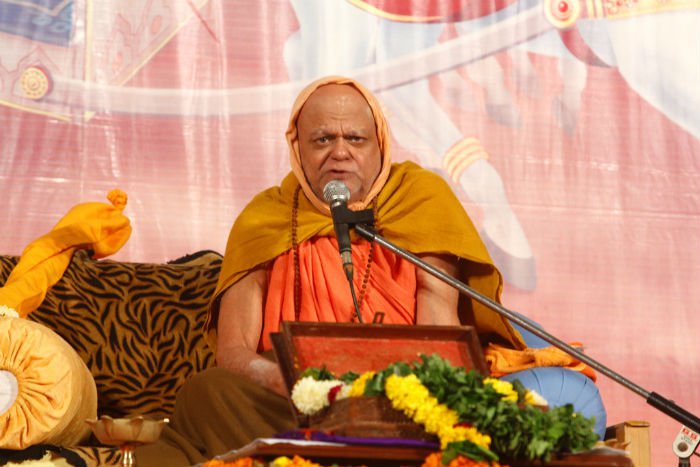LUCKNOW: Puri Shankaracharya Swami Nischalananda Saraswati on Wednesday claimed that computer, binary system and easy calculation methods have origin in the Vedas. Addressing students at Malviya hall of the Lucknow University, he said scientific innovation and technology can become more successful with the use of vedic science for research.
“Atharvaveda also known as the Veda of ‘magical formulas’ have made mathematics simpler. The binary system used in all modern computers and computer-based devices originated in the Atharvaveda. It also has the concept of `Zero’. Calculations that took hours were possible in just a few minutes with the help vedic mathematics,” said Swami Nischalananada, who is Peethadheeshwar Jagadguru Shankaracharya of Govardhana Matha in Puri, Odisha, one of the four mathas founded by Adi Shankara in the 8th century.
The event was organized by the Lucknow Management Association in which Shankaracharya delivered a talk on Vedas and interacted with students on science, history and their career objectives.
Shankaracharya also claimed that vedic science gives right concepts about physics, mathematics, politics or any other science. In Vedas, he said, politics is not ‘rajneeti’, it is ‘Rajya Dharma’ that defines responsibility, good governance, good environment , good health, wellness and justice. “Modern day science still has no answers to many questions, but vedic science answered all queries. Though vedic science has been recognized around the world in universities like Oxford, Cambridge, India is still to realize its power”, he added.
According to Shankaracharya, Rashtra Nirman (nation building) is missing from the present day education system. Present day education system is more focused on money generation than spreading enlightenment and using education for the benefit of mankind. Spiritual and religious people are often regarded as narrow-minded people, so there is need to make people understand what is the real meaning of ‘dharma’. He said Dharma is karma, utility of a person to the society. A person should fulfill the responsibility for which he has taken birth.

